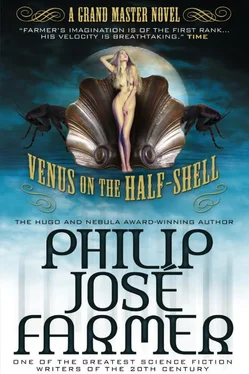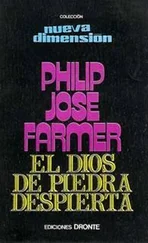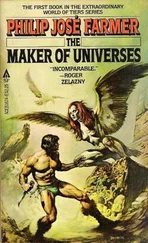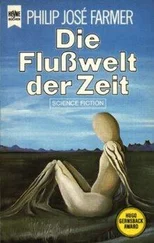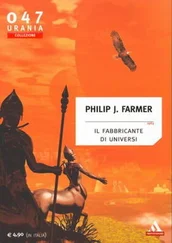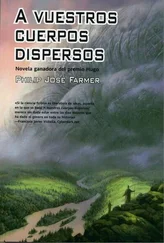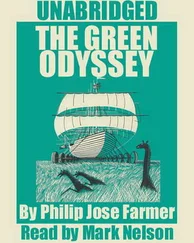Mr. Vonnegut is the primary source of our information about Kilgore Trout. We should all be grateful to him for bringing Trout’s life and works to our attention. Unfortunately, Vonnegut refers to him only in the latter three books, and these are popularly believed to be fictional. They are to some extent, but Kilgore Trout is a real-life person, and anybody who doubts this is free to look up his birth record in Bermuda.
Vonnegut has brought Trout out of obscurity and has given us much of his immediate life. He has not, however, given us the background of Trout’s parents, and so I have conducted my own investigations into Trout’s pedigree. The full name of Kilgore’s father was Leo Cabell Trout, and he was born circa 1881 in Roanoke, Virginia. Trouts have lived for generations in this city and its neighbor, Salem. Leo’s mother was a Cabell and related to that family which has produced the famous author, James Branch Cabell ( Figures of Earth , The Silver Stallion , Jurgen ) and a novelist well known in the nineteenth century, Princess Amelie Troubetzkoy. The princess was the granddaughter of William Cabell Rives, a U.S. Senator and minister to France. Her first novel, The Quick or the Dead?, was a sensation in 1888.
Trout inherited a talent for writing from his mother’s side also. She was Eva Alice Shawnessy (1880-1926), author of the Little Eva series, popular children’s books around the turn of the century. She wrote these under the nom de plume of Eva Westward and received only a fraction of the royalties they earned. Her publisher ran off with his firm’s profits to Brazil after inducing her to sink her money into the firm’s stock. Her unpublished biography of her father was the main source of information for Ross Lockridge when he wrote Raintree County .
Her father was John Wickliff Shawnessy (1839-1941), a Civil War veteran, country schoolteacher, and a frustrated dramatist and poet. Johnny spent much of his life thinking about and seeking the legended Golden Raintree, an arboreal Holy Grail, hidden somewhere in the Great Swamp of Raintree County. Johnny never finished his epic, Sphinx Recumbent , but a great-grandson has taken this and rewritten it as a science fiction novel. Leo Queequeg Tincrowdor (born 1918) is the son of Allegra Shawnessy (born 1898), daughter of Wesley Shawnessy (18791939), eldest son of John Wickliff Shawnessy. Kilgore’s cousin, Leo, is primarily a painter, but he has written some science fiction stories which have been favorably compared to Kilgore’s.
Johnny’s father was Thomas Duff Shawnessy (died 1879), farmer, lay preacher, herbalist, and composer of county-famous, but awful, doggerel. He was born in the village of Ecclefechan, Dumfriesshire, Scotland, and was the illegitimate son of Eliza Shawnessy, a farmer’s daughter. Thomas Duff revealed to his son Johnny that his, Thomas’, father had been the great Scots essayist and historian, Thomas Carlyle (1795-1881). Eliza (1774-1830) had taken Thomas Duff when he was a boy to the state of Delaware. After his mother died, Thomas Duff Shawnessy and his nineteen-year-old bride, Ellen, had settled in the newly opened state of Indiana. Thomas Duff thought that his father’s writing genius might spring anew in his grandson, Johnny. Surely the genes responsible for such great books as Sartor Resartus , The French Revolution , and On Heroes, Hero Worship, and the Heroic in History would not die.
There is, however, strong doubt that Thomas Carlyle was T. D. Shawnessy’s father. Eliza Shawnessy would have been twenty-one years old in 1795, the year Carlyle was born. Even if she had seduced Carlyle when he was only twelve, Thomas Duff would have been born in 1807. This would make him thirteen years old when he married the nineteen-year-old Ellen. This is possible but highly improbable.
It seems likely that Eliza Shawnessy lied to her son. She wanted him to think that, though he was a bastard, his father was a great man. Probably, Thomas Duff’s father was actually James Carlyle, stonemason, farmer, a fanatical Calvinist, and father of Thomas Carlyle. The truth seems to be that Thomas Duff Shawnessy was the half-brother of Thomas Carlyle. Thomas Duff should have been able to figure this out, but he never bothered to look up the date of his supposed father’s birth.
Johnny’s mother, Ellen, was a cousin of Andrew Johnson (1808-1875), the seventeenth president of the United States.
Johnny’s second wife, Esther Root (born 1852), was of English stock with a dash of American Indian blood (from the Miami tribe, probably).
With so many writers in his pedigree, it would seem that Kilgore Trout was almost destined to become a famous author. However, his talents were marred by his personality, which had been soured and depressed by an unhappy childhood. His father was a ne’er-do-well, and his mother was embittered by her husband’s drunkenness and infidelity, and by the theft of her royalties. Trout was prevented from going on to college by his parents’ long and expensive illnesses, resulting in their deaths a few years after he graduated from high school.
Trout had three great fears that rode him all his life: a fear of cancer, of rats, and of Doberman pinschers. The first came from watching his parents suffer in their terminal stages. The second came from living in so many basements and tenement houses. The third resulted from several attacks by Doberman pinschers during his vagabondish life. Once, out of a job and starving, he tried to steal a chicken from a farmer’s henhouse but was caught by the watchdog. Another time, he was bitten while delivering circulars.
Trout’s pessimism and distrust of human beings ensured that he would have no friends and that his three wives would divorce him. It drove his only child, Leo, to run away from home at the age of fourteen. Leo lied about his age and became a U.S. Marine. While in boot camp he wrote his father a denunciatory letter. After that, there was a total lack of word about Leo until two FBI agents visited Kilgore. His son, they told him, had deserted and joined the Viet Cong.
Trout moved around the States, working at low-paying and menial jobs and writing his science fiction stories in his spare time. After his final divorce, his only companion was a parakeet named Bill. Kilgore talked a lot to Bill. And for forty years Kilgore carried around with him an old steamer trunk. This contained many curious items, including toys from his childhood, the bones of a Bermudian ern, and a mildewed tuxedo he had worn to the senior dance just before graduating.
Sometime during his lonely odysseys, he fell into the habit of calling mirrors “leaks.” Mirrors were weak points through which leaked visions of universes parallel to ours. Through these four-dimensional windows he could see cosmos occupying the same space as ours. This delusion, if it was a delusion, probably originated from his rejection of our universe. This was, to him, the worst of all possible worlds.
Our planet was a cement mixer in which Trout had been whirled, tossed, beaten, and ground. By the mid-1960s, his face and body bore all the scars and traumas of his never-ending battle against the most abject poverty, of his unceasing labors in writing his many works, of a neglect by the literary world and, worse, by a neglect from the readers of the genre in which he specialized, science fiction, and of an incessant screwing by his fly-by-night publishers.
Fred Rosewater, in God Bless You, Mr. Rosewater, picks up a book by Trout. It is Venus on the Half-Shell, and on its paper back is a photograph of Trout. He’s an old man with a bushy black beard, and his face is that of a scarred Jesus who’s been spared the cross but must instead spend the rest of his life in prison.
Читать дальше
